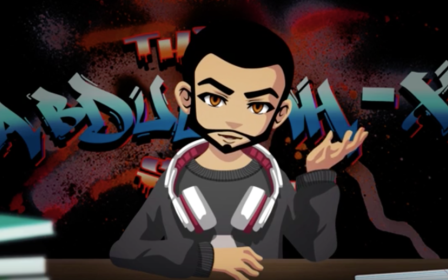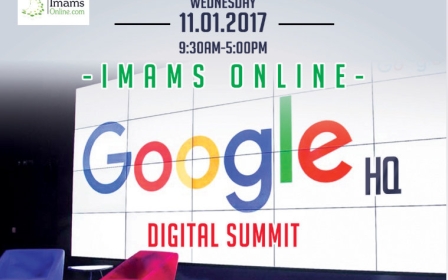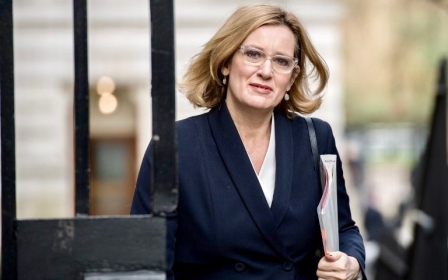'Secret deals' with tech companies unacceptable, UK government told

Civil liberties campaigners have called for the UK government to be transparent about its relationship with technology companies amid calls for them to do more to help tackle online extremism.
Representatives of leading companies, including Google, Facebook and Twitter, were on Thursday set to meet Home Secretary Amber Rudd who called for encrypted messaging services such as WhatsApp to be made accessible to the police and intelligence services following last week's attack in London.
The meeting comes after Middle East Eye also revealed how Google was already working with the Office for Security and Counter Terrorism (OSCT), a Home Office department, to provide "digital and communications support" to counter-extremism campaigners supported by the government.
In a letter, campaign groups said that private, informal agreements between government and technology companies were "not consistent with open, democratic governance".
The letter was signed by organisations, including the Open Rights Group, Reporters Without Borders, the Index for Censorship, Liberty, Human Rights Watch and Privacy International.
They called for transparency about any meetings and agreements made between the government and technology companies; evidence-based policies that did not jeopardise the personal security of UK citizens; and input from civil society groups to ensure that privacy and free speech rights were protected.
They also warned that weakening encryption technologies would put UK citizens at greater risk of cyber-crime and pointed out that the Investigatory Powers Act already gave the government the right to compel companies to reengineer products and services.
"Government requests directed to tech companies to take down content is de facto state censorship," the letter said.
"Some content may be legal, but potentially offensive or express extreme views. Co-operation therefore sets the bar for censorship much lower for government, as material that is legal can be taken down based on government will rather than transparent legal process. We need assurances that only illegal material will be sought out by government officials and taken down by tech companies."
'The ability to communicate securely is essential for investigative journalists, their sources, and whistleblowers'
– Rebecca Vincent, Reporters Without Borders
Rebecca Vincent, UK bureau director at Reporters Without Borders, said that government efforts to make encrypted communications accessible would have a "chilling effect" and strike a "damaging blow" to investigative journalism.
"Amber Rudd's comments on encryption are yet another example of this government sacrificing freedom of expression, the right to privacy, and other human rights in the name of security, and contribute to a very worrying trend of increasing attacks on press freedom in the UK in recent months. The ability to communicate securely is essential for investigative journalists, their sources, and whistleblowers," said Vincent.
Jim Killock, the executive director of the Open Rights Group, said that Rudd had showed a "worrying lack of understanding about how encryption keeps us all safe.
"She clearly needs to talk to experts but this should be done openly and transparently. Secret deals between governments and companies have no place in a democracy.”
The OSCT has refused to release documents relevant to its relationship with Google because it says that doing so would compromise national security, prejudice the prevention or detection of crime, prejudice commercial interests, and undermine Prevent.
But it did tell MEE, in response to a Freedom of Information request, that it connected campaigners "with industry experts to provide them with the digital and communications support they need to deliver their own campaigns, including creative advice, production capabilities, website build, media training and public relations support".
MEE understands that the relationship between Google and the OSCT dates back to at least 2012 when counter-extremism campaigners were invited to a YouTube workshop organised by the OSCT’s Research, Information and Communications Unit (RICU).
"As you know, we at RICU are supporting a network of civil society groups such as yours to build your communications capabilities,” the invitation said.
Google has however come under pressure to do more to tackle online extremism after advertisements paid for by the UK government and prominent companies were placed alongside videos uploaded to YouTube by white supremacists and on websites linked to Hezbollah and Hizb ut-Tahrir.
Rudd last week said it was "completely unacceptable" that the UK's intelligence services were unable to access encrypted messaging services after it was revealed that Khalid Masood, the man who carried out last week's Westminster attack, had sent a message using the Facebook-owned WhatsApp platform shortly beforehand.
"It is completely unacceptable, there should be no place for terrorists to hide. We need to make sure organisations like WhatsApp, and there are plenty of others like that, don't provide a secret place for terrorists to communicate with each other," said Rudd. "We need to make sure that our intelligence services have the ability to get into situations like encrypted WhatsApp."
The UK is already considered to have some of the most draconian surveillance powers in the world since the Investigatory Powers Act, which legalised the bulk surveillance of all internet activity, became law in November last year.
Amnesty International said the act "threatens to have devastating consequences for privacy and other human rights in the UK and beyond".
Middle East Eye propose une couverture et une analyse indépendantes et incomparables du Moyen-Orient, de l’Afrique du Nord et d’autres régions du monde. Pour en savoir plus sur la reprise de ce contenu et les frais qui s’appliquent, veuillez remplir ce formulaire [en anglais]. Pour en savoir plus sur MEE, cliquez ici [en anglais].




